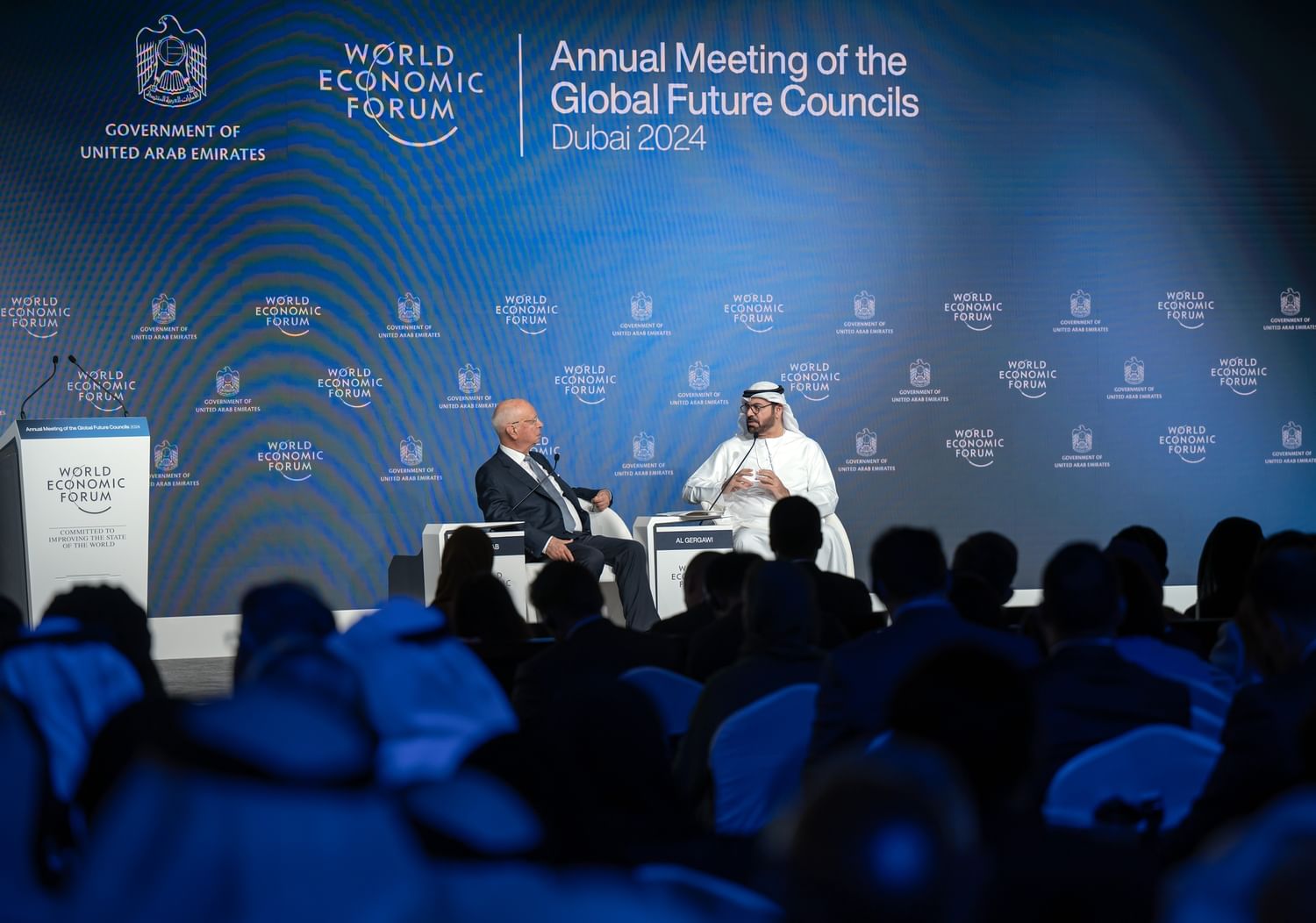Dubai, UAE — Over 500 experts gathered at the World Economic Forum Annual Meeting of the Global Future Councils 2024 in Dubai to address the world’s most pressing issues related to economic inequality, climate emergency and geopolitical tensions.
The meeting was organized in collaboration with the government of the United Arab Emirates. Global Future Council experts, made up of thought leaders from academia, government, international organizations, business and civil society, led discussions that served as a crucial platform to set the tone for the World Economic Forum Annual Meeting 2025 in Davos and shape the global agenda for the critical months ahead.
“Four forces – geopolitical fragmentation, technological transformation, ecological reconceptualization and societal polarization – are creating a world that is more complex and uncertain than ever before,” said Klaus Schwab, Founder and Chairman of the Board of Trustees, World Economic Forum.
“We will master those transformations only by creating positive visions which will encourage people to contribute to be part of a better future.”
Mohammad Abdullah Al Gergawi, Minister of Cabinet Affairs of the United Arab Emirates, said, “The only constant conviction we recognize every day is that nothing remains stable.”
“The primary measure of success for nations, communities and individuals is agility and adaptability.”
Mirek Dušek, Managing Director, World Economic Forum, said, “We are meeting at a time when the world is entering a more contentious, contested era. We also face a fragile global economy and heat records are being broken almost every month, while innovation is unfolding at unprecedented speed.”
“These developments are not bound by borders and can only be addressed through international, cross-sector cooperation and bold ideas. That is what the Global Future Councils are truly about.”
Participants engaged in high-level discussion on themes related to innovation for inclusive growth; climate action, nature protection and the energy transition; and building trust for global collaboration.
At the meeting, the Forum also launched a custom-built Strategic Intelligence platform for the UAE, as well as a cybersecurity report. For the first time, the meeting also included over 50 global business executives from C-suite functions (chief economists, chief risk officers, chief people officers, chief health officers, chief learning officers) to explore new ways to implement measures to improve workers’ well-being and learning opportunities, and improve risk preparedness and economic forecasting. In addition, the WEF and the GFCs launched or advanced over 10 initiatives and reports during the meeting.
Innovation for inclusive growth
Sessions explored how to revive economic growth given the current global context and highlighted the need for public-private partnerships to support inclusive and sustainable growth. The theme was discussed across various council working sessions, including on gender, human capital, and the impact of artificial intelligence on growth.
The Forum published a series of reports on artificial intelligence. One addressed value alignment of ethical principles and societal norms on AI systems, such as fairness, privacy and transparency, a complex process to define globally given cultural differences and to implement technically. Another report focused on governance in the age of generative AI, providing policy-makers and regulators with a unique, comprehensive 360-degree framework and actionable recommendations for generative AI governance.
“We need to talk about AI as a technology that is either going to be an existential threat or an existential opportunity for humanity,” said Omar Sultan Al Olama, Minister of State for Artificial Intelligence, Digital Economy and Remote Work Applications, Office of the Prime Minister of the United Arab Emirates.
“Today the world is very different,” said Mona Haddad, Global Director for Trade, Investment and Competitiveness, World Bank Group. “We are no longer seeing open markets, we are no longer seeing globalization in the same way.”
“The good news is that the technology for green growth is now more affordable than ever,” said Masood Ahmed, President, Center for Global Development. “But financing costs are very high.”
Climate action, nature protection and the energy transition
Councils addressed topics related to the climate and nature crisis, including clean air and urban mobility. Sessions also explored novel approaches needed to tackle emissions while ensuring an equitable and socially responsible transition. As climate negotiations continue to be shaped by equity concerns, participants explored how the global community can move beyond existing divides to ensure the most vulnerable countries can access the capital and technology needed to transform into green and resilient economies.
The Forum published a report on clean air actions in cities, which guides city leaders in taking action to improve air quality in cities. Another report explored practical action to mitigate the impact of black carbon through a rapid action plan for global policy.
“As climate change accelerates, the need to act goes beyond environmental responsibility alone – it has become an imperative to remain competitive in the global marketplace,” said Maroun Kairouz, Head of Middle East and North Africa, World Economic Forum.
“When you think about creating health, we think about healthcare. The reality is that over 80% of factors that influence our health lie outside of healthcare,” said Tolu Oni, Clinical Professor of Global Public Health and Sustainable Urban Development, University of Cambridge.
Building trust for global collaboration
In an increasingly fragmented and polarized world, the meeting emphasized pathways for trust-building and collaboration across countries, industries and disciplines. Delegates underlined the role technology could play in global collaboration, though they also highlighted the risk of technology contributing to fragmentation, calling for collaboration in the Intelligent Age. Council meetings and cross-council sessions covered trade and investing, antimicrobial resistance, and advances in technology.
The Chief Risks Officers Outlook highlighted a range of global risks with the potential to threaten economic growth, destabilize geopolitical relations further and disrupt broader business operations over the coming months. The Forum published a cybersecurity report underscoring the urgent need for a fundamental paradigm shift from “security by design” to “resilience by design” to mitigate rapidly evolving risks.








